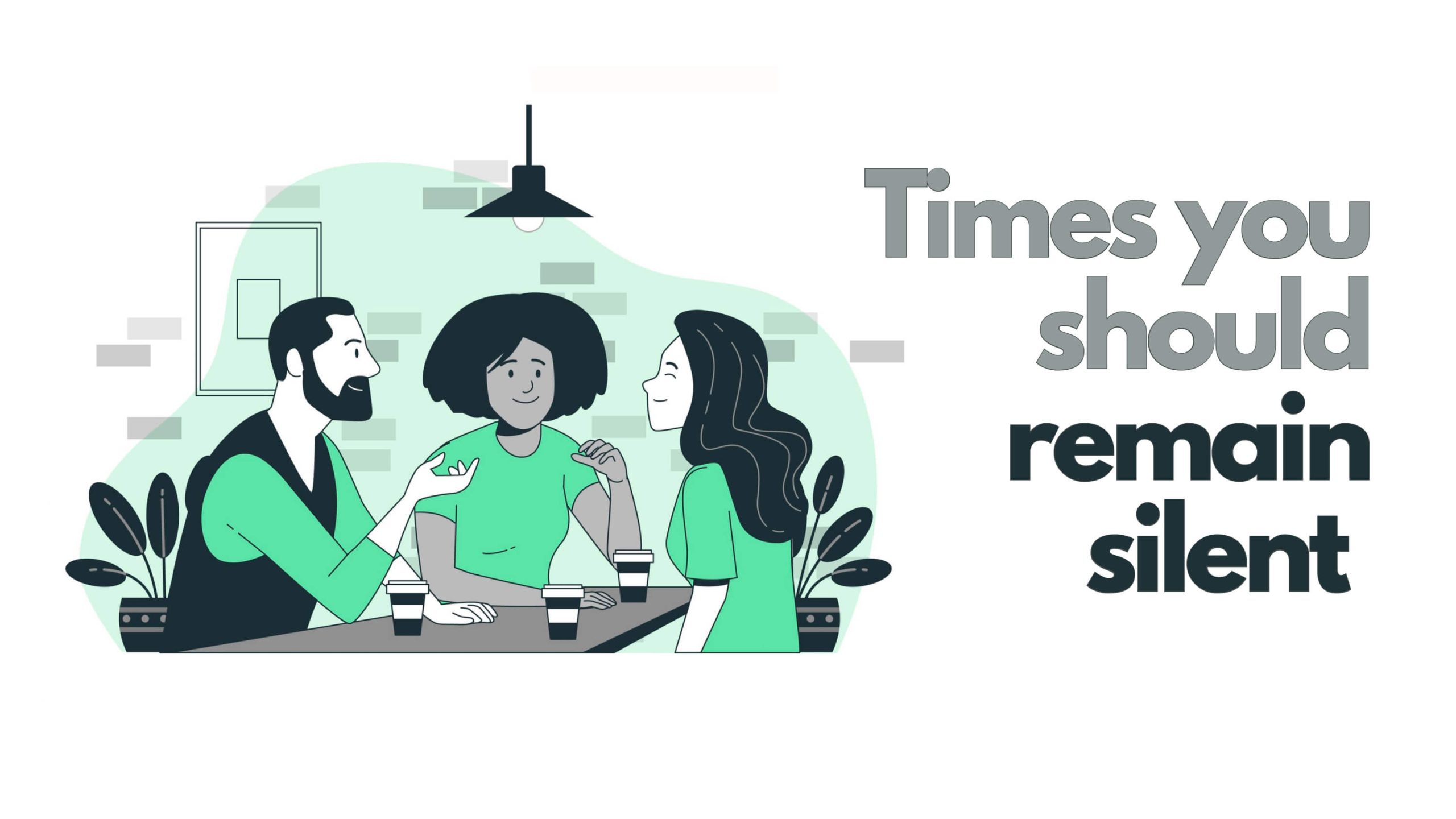“The world would be happier if men had the same capacity to be silent that they have to speak.” – Baruch Spinoza
There are many situations when you have to speak up, give your opinion, and make your voice heard. But there are also many times when you have to do the harder thing and stay silent. Here are the situations when you have to watch what you say and, perhaps, not say anything at all.
When someone is sharing their emotions
When we are talking to other people, we can sometimes monopolize the conversation. But listening is even more important, especially when people are making themselves vulnerable and are sharing their emotions, feelings, and sensitive experiences.
Here, we should not intervene. Instead, we can just listen and show them that we are listening. But one of the worst conversational mistakes we can make is trying to interrupt them or talk about our own experiences. Let the other person finish and give them your attention. This is what will nurture that relationship and help the other person feel heard.
When too many people are talking already
In social situations, people sometimes start talking over each other. When there is this noise, we might try to add more to it, to get others to quiet down or to have our voice heard. But there is little point in trying to speak over others. It will only generate more noise but not really lead to better results.
Instead, give others time to stop talking or step away from the situation. Until other people quiet down, there is little point in talking to those around you, as you will not be heard and your voice will just become another note in that cacophony.
When someone won’t let you finish
One of the most frustrating situations is hen we can’t get our thought across. The other person keeps interrupting or shutting us down. Often, what we do is try and push harder. But the better solution is just to stop.
When you stop trying, you show that you are not going to play their game and that you are not going to work for their attention. It might even be a better play to get them to stop too and listen, but it’s not something to count on. But if the person is not listening, there is no point in wearing yourself out by trying to get them to hear you. If they don’t want to, they will not.
When you are experiencing something different
It’s harder to show empathy to people who are in a different situation than you, and the bigger difference leads to more difficulty. If you are happy, it’s harder to remember what it felt like to be in a negative mindspace, while feeling miserable can make you unsympathetic to someone struggling with what you perceive to be a small issue.
If you find yourself feeling uncharitable to what the other person is saying, often the better idea is to stop and listen. You don’t have to offer your opinion or judgment or advice if it wouldn’t be particularly useful. Sometimes, we are not in a good position to offer something helpful, and it’s fine to just listen rather than speak.
When you don’t fully understand the topic
Socially, it seems like we have to have an opinion on everything. However, we also need to consider that sometimes we just don’t have anything to add. Maybe it’s because we are not informed or not in the know, and that is fine.
We don’t have to say something every time or offer an opinion on each situation. Instead, we should also be able to say that we just don’t know and learn from what other people are saying.
When you are very angry
Anger is a powerful motivation. It drives us to think and say things that we tend to regret later. When you feel very angry, it’s rarely a good time to speak. Rather, think about what you want to say and take your distance. If you still want to say these things later on, when you are calm, say them.
However, anger can be a poor counselor, because it always drives us to hurt others with our words and actions. If we know we will say something that is not entirely fair, we are better off not saying it at all.





